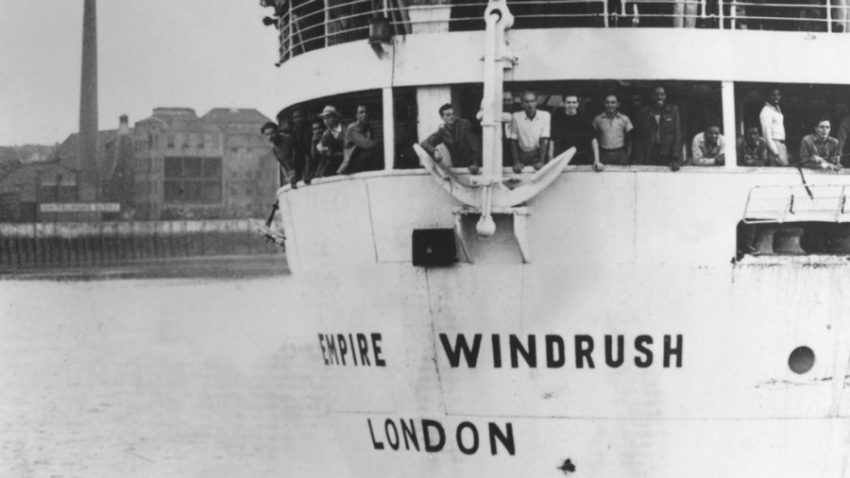June is a significant opportunity to contemplate Britain’s long – and recent – history of coloniality and migration: not only does Refugee Week take place each June, but June 22, 2023 marks the 75th anniversary of the landing of HMT Empire Windrush, better known as the Windrush, at Tilbury Docks in Essex.
This ship brought 492 people from Jamaica to the UK in June 1948. Many were former servicemen who had fought for Britain in WW2, and were now looking for work and new lives. As the Caribbean was then part of the British Empire, the passengers were British subjects free to permanently live and work in the UK. Many took up jobs in the newly-formed NHS and other sectors affected by Britain’s post-war labour shortage. However, they and many of the other people who moved to the UK from the Caribbean in the following 25 years encountered many difficulties due to racist prejudice at levels ranging from the interpersonal to the systemic. The ‘Windrush generation’ were approximately half a million people who arrived in the UK from Caribbean countries between 1948 and 1973.
The Windrush scandal surfaced in 2017 after it emerged that hundreds of Commonwealth citizens, many of whom were from the Windrush generation, had been wrongly detained, deported and denied legal rights. As these shocking stories hit the headlines, there was widespread outrage at the fact that so many Black Britons had had their lives devastated by Britain’s deeply flawed and discriminatory immigration system- most notably, the UK government’s ‘Hostile Environment’ legislation. This policy, announced in 2012, explicitly aims to make the UK unlivable for undocumented migrants and push them to leave. It demands that migrants produce proof of their right to be in the UK. But because many of the Windrush generation arrived as children on their parents’ passports, and the Home Office destroyed thousands of landing cards and other records, many lacked the documentation to prove their right to remain in the UK. Falsely deemed ‘illegal’ they began to lose their access to housing, healthcare, bank accounts and driving licenses. Many were placed in detention, prevented from travelling abroad and threatened with forcible removal. Others were deported.
Their harmful and unjust treatment provoked widespread condemnation of the UK government’s failings, and yet for many people affected by the Windrush scandal, justice has still not been done. The Windrush compensation scheme is so hard to navigate that only 5.8% of the people eligible for compensation have received a payment. Most importantly, the hostile environment policies that led to this disaster are still in place.
The independent review published in March 2020 made it clear that the harms done to the Windrush generation were not accidental but the inevitable result of policies designed to make life impossible for people without the right papers. This, coupled with decades of immigration legislation explicitly aimed at reducing non-white immigration from the Commonwealth, devastated the lives of many Black and minority ethnic British people. Further analysis by think tanks such as the Institute for Public Policy Research found that the hostile environment policy has fostered racism, pushed people into destitution and wrongly targeted people who are living in the UK legally.
[Image description: a rather grainy black and white photograph of HMT Empire Windrush, a huge ship, photographed as it travelled into the docks in Essex. We see the prow of the boat with a huge white anchor and the words ‘Empire Windrush London’ painted on the hull. People are leaning over the deck and smiling at the camera. In the background, industrial chimneys and warehouses are visible.]
—
Share on Twitter /
Share on Facebook
Posted on June 7, 2023
Categories: Decolonising Art & Culture
Tags: 2023, Windrush
→ Protected: Artist In Residence: Daniel J.G
← Save Arts and HUMANITIES AT THE UNIVERSITY OF BRIGHTON
